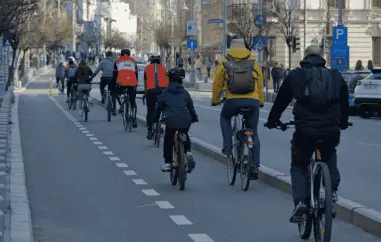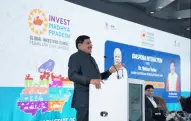Governmental Dispute Over Climate Action: Will Car-Free Weekends Become Reality?
 In a recent turn of events, Economics Minister Robert Habeck (Greens) celebrated a victory in March, claiming that Germany was on track to achieve its climate protection targets with the measures implemented. However, almost a month later, Transport Minister Volker Wissing (FDP) has made a surprising announcement: Germans may soon be required to keep their cars parked on weekends. How could this unfold? Here are the key questions and answers surrounding this contentious issue.
In a recent turn of events, Economics Minister Robert Habeck (Greens) celebrated a victory in March, claiming that Germany was on track to achieve its climate protection targets with the measures implemented. However, almost a month later, Transport Minister Volker Wissing (FDP) has made a surprising announcement: Germans may soon be required to keep their cars parked on weekends. How could this unfold? Here are the key questions and answers surrounding this contentious issue.
Assessing the Climate Challenge in Transportation:
The transportation sector has consistently fallen short of its climate objectives, emitting approximately 22 million tonnes of CO2 beyond the targets set for 2022 and 2023. Under the Climate Protection Act, Minister Wissing faces the urgent task of presenting a program by summer to bridge this gap. Additionally, future climate targets for transportation, including airplanes, trucks, and cars, must align with the goal of reducing emissions by 2030.
Understanding Wissing's Proposal for Car-Free Weekends:
Minister Wissing contends that immediate, drastic measures are necessary to address the shortfall of 22 million tonnes of CO2. He suggests that reducing car travel by around 15 percent and truck travel by over ten percent could achieve significant emissions reductions. In a letter to coalition factions, Wissing advocates for "comprehensive and indefinite driving bans on Saturdays and Sundays" or similar restrictive measures to curb emissions.
The Likelihood of Driving Bans:
Despite Wissing's proposal, driving bans are unlikely to materialize as there is no consensus within the coalition government to implement them. Rather, Wissing's letter serves to pressure the Greens into supporting a reform of the climate protection law in the Bundestag. Discussions surrounding this reform have been ongoing for nine months without a resolution.
Alternative Measures and Political Disagreements:
While the Greens advocate for continued efforts across all sectors to meet climate goals, they also propose measures such as a speed limit to reduce emissions. However, the FDP rejects the idea, emphasizing that it alone would not suffice to close the emissions gap. The Federal Environment Agency has suggested various measures, including promoting electromobility and reforming vehicle taxation to incentivize the purchase of electric cars.
As the debate over climate action intensifies within the government, the prospect of car-free weekends has sparked controversy and highlighted differing approaches to addressing emissions in the transportation sector. While Minister Wissing calls for drastic measures to meet targets, the feasibility and implications of such actions remain subjects of debate. As stakeholders continue to grapple with these complex issues, the urgency of achieving climate goals while balancing economic and political interests remains paramount.
Image by Mircea Iancu from Pixabay















































